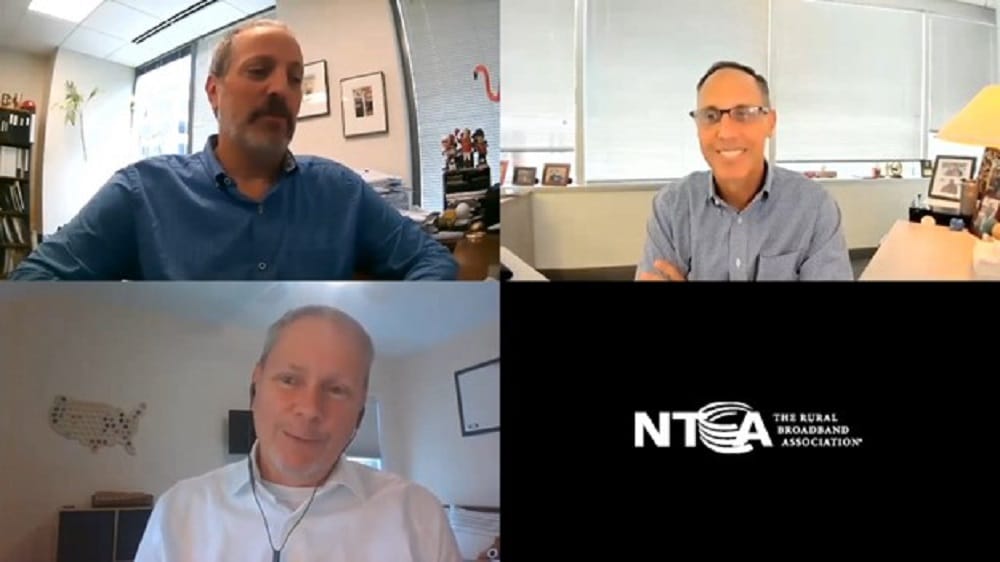Advocates for Rural Broadband Providers Commiserate on Flaws in Federal Approach to Funding
September 23, 2020 – Individuals representing different facets of rural broadband – traditional telecom companies, rural electric utilities, wireless providers and state regulators – on Thursday voiced concerns about aspects of the federal government’s rural broadband programs. Many of these players
Liana Sowa

September 23, 2020 – Individuals representing different facets of rural broadband – traditional telecom companies, rural electric utilities, wireless providers and state regulators – on Thursday voiced concerns about aspects of the federal government’s rural broadband programs.
Many of these players have run into difficulty in spite of promised federal funding, they said during the third day of the virtual event of NTCA, the Rural Broadband Association. They also vented frustrations with the U.S. Department of Agriculture’s Rural Utilities Service, as well as the Federal Communications Commission.
“We were disappointed when [Rural Digital Opportunity Fund] came along and the FCC said at the last minute that anywhere that’s gotten state funds is off the map for the RDOF,” said Brian O’Hara, senior director of regulatory issues at the National Rural Electric Cooperative Association.
“A lot of times the state funds aren’t enough to build a network,” O’Hara continued. “They’re not a big pot of money, so if they could get extra money to give those levels a higher level of service, it just makes sense” to include state and federal funds together.
O’Hara said that 32 electric coops won bids for about $30 million in the prior Connect America Fund, Phase II, auction that took place in 2018.
“Since the last auction there’s been three times as much demand for [rural broadband] auctions, so we need more,” said O’Hara.
Steve Coran of Lerman Senter, which works with wireless internet providers said “some of our members have successfully obtained state money through the CARES Act” that was relatively free from bureaucratic strings. That is not the case with the Connect America Fund or the Rural Digital Opportunity Fund, he said.
He added that wireless providers who have applied for Reconnect money “aren’t very happy.”
“My personal view is there’s a little bit of a bias for those who have traditionally been in front of RUS and proposed fiber builds and I’ve seen a lot of that money going to the co-ops,” said Coran.
Yet he praised the Connect America Fund process of the FCC as “open[ing] the door for a ton of private investment to come into our members.”
States such as South Dakota and Nebraska have also looked to the government for funding.
“In 2019 the governor of South Dakota asked the legislature for an appropriation to provide state money for a broadband program, and it was very successful,” said Chris Nelson, public utilities commissioner for South Dakota.
Nebraska has taken a different approach, creating their own state universal service fund. This fund collects a fee from all telephone users in the state.
Crystal Rhoades, a Nebraska Public Service Commissioner, said that her agency used FCC Forum 477 data to determine and analyze where to spend state funds.
There are many issues still facing rural broadband providers.
Rhoades said that because of the high cost for deploying rural broadband, there are policy disagreements on whether to use fiber or fixed wireless, as well as debate on whether state and federal funds “should be given for ongoing operational expenses versus capital expenditures for further deployment.”









Member discussion